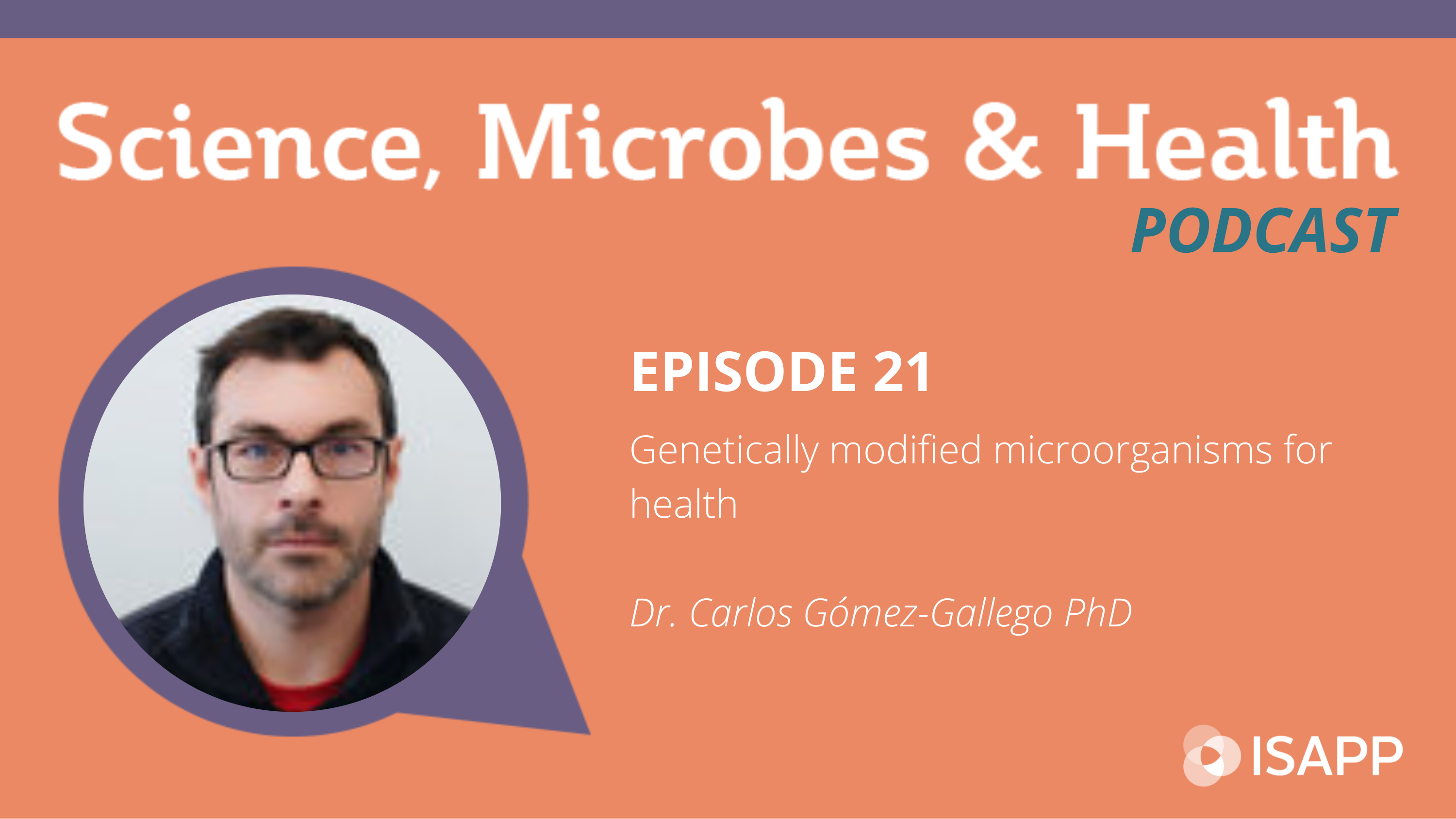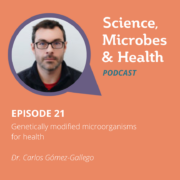Episode 21: Genetically modified microorganisms for health

Podcast: Play in new window | Download
Subscribe: Apple Podcasts | Spotify | RSS
The Science, Microbes & Health Podcast
This podcast covers emerging topics and challenges in the science of probiotics, prebiotics, synbiotics, postbiotics and fermented foods. This is the podcast of The International Scientific Association for Probiotics and Prebiotics (ISAPP), a nonprofit scientific organization dedicated to advancing the science of these fields.
Genetically modified microorganisms for health, with Dr. Carlos Gómez-Gallego
Episode summary:
In this episode, ISAPP podcast host Dan Tancredi joins guest Carlos Gómez-Gallego PhD, from University of Eastern Finland, to discuss genetically modified microorganisms. They go over what genetically modified microorganisms are, their potential benefits over non-modified microorganisms, and how they might improve human health–in particular, diseases of the metabolic and immune systems.
Key topics from this episode:
- Genetically modified microorganisms are those that have been modified using genetic engineering, giving them abilities they do not normally have. Functions can be either conferred or deleted. Different genetic engineering tools can be used – e.g. to make them produce therapeutic compounds, or make them increase degradation of toxins or harmful compounds.
- One advantage over non-modified microorganisms is the potential to have continuous delivery of a therapeutic compound, and the potential to deliver it to a localized area in order to avoid unwanted interactions.
- Genetically modified microorganisms have promise in metabolic and immune-linked disorders such as non-alcoholic fatty liver disease (NAFLD).
- In NAFLD, genetically modified E. coli Nissle can secrete hormones that are under-regulated or under-expressed. His group modified bacteria by introducing a plasmid that allowed it to produce aldafermin, an analog of the human hormone fibroblast growth factor 19 (FGF19).
- With genetically engineered microorganisms, we must consider the benefits but also the risks. However, if it’s a therapeutic for a disease with few or no alternatives, there’s a strong case for developing them.
- To increase efficacy and safety of these microorganisms, it’s possible to introduce sensors that produce the therapeutic in response to different stimuli. Also, it’s important to modify the bacteria so their use is controlled and they cannot spread. They can also be modified to avoid transmission of genes.
- Are there market-approved genetically modified microorganisms? No approved ones yet, but some are in Phase 1 and Phase 2 clinical trials.
Episode links:
- Review on manipulating bacteria for cancer treatment — Tweak to Treat: Reprograming Bacteria for Cancer Treatment
About Dr. Carlos Gómez-Gallego:
I am a Senior Researcher at the Institute of Public Health and Clinical Nutrition (University of Eastern Finland). I have completed two university degrees, one in Biology and another in Food Science and Technology, and an MSc in Nutrition and Health. I subsequently completed a Ph.D. from the University of Murcia, where I investigated the effect of infant formula processing on the content of polyamines and bioactive peptides, and their impact on intestinal microbiota and immune system development during lactation.
My research and interests are primarily focused on advancing the understanding of the impact of diet, food, and bioactive compounds on human microbiota and their association with human health. As part of the BestTreat project (https://besttreat.eu/index.html), I have co-supervised two PhD students (Johnson Lok and Valeria Ianone) who evaluated the potential use of engineered E. coli Nissle 1917 producing human hormones for the treatment of non-alcoholic fatty liver disease (NAFLD) in a mouse model. The first publication has already been submitted, and the second is currently in process.
More info about my publications:
Research Gate https://www.researchgate.net/profile/Carlos-Gomez-Gallego
UEF connect https://uefconnect.uef.fi/en/person/carlos.gomez-gallego/#information





